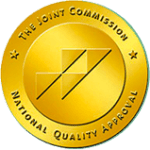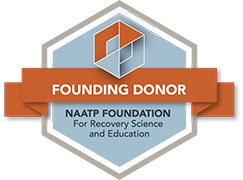Staying Motivated in Long-Term Sobriety
As human beings, we’re naturally going to “fall off the bandwagon” every now and then. We’re going to make mistakes, get lost, take a few steps back and find our way again – and it’s all part of the journey. Even those who have experienced 10 excellent, sober years may find their recovery motivation start to fade, sometimes without a cause. While everyone’s journey will look a little different, there are still many things we can all do to stay motivated.
-
Maintain spiritual fitness.
One person shared their experience with sobriety via The Fix, a website that provides stories and information on living sober. In 2018, he described his journey with spiritual fitness as this: “It’s derived from the relationship I have with my higher power. It starts with accepting that only my higher power can keep me sober.”
He went on to describe a number of activities he engages in to stay “spiritually fit” in his recovery:
- Practicing gratitude for what he has
- Going back to The Big Book, an important text in AA
- Meditation
- Engaging in self-care, such as getting a good night’s sleep
- Building on his sense of purpose through strengthening his personal connection with God or another Higher Power
- And more
Spiritual fitness is a great way to stay motivated in long-term recovery because it gets right at the core of us. Our soul – our spirit – needs to be filled with love and light in order for us to continue on the journey of healing and transformation, and spiritual practices remind us of what matters most. Rather than staying engulfed in our own ego (engaging in self-pity, self-seeking habits, and more), we become reminded that it’s more than us – it’s something much greater.
-
Provide service to others.
12-Step programs highlight that because we’re such a small part of something much larger than ourselves, we can carry on the beauty of recovery by helping others. Many people who have completed AA as well as formalized treatment go on to become sponsors of 12-Step programs, substance abuse counselors, peer recovery specialists and more. It is through this support of others’ recovery that we feel a greater sense of purpose, enrichment and connection in our lives. While you’re navigating your own long-term sobriety journey, helping others can not only benefit them – but can help you remember how far you’ve come along in your journey as well.
-
Surround yourself with positivity.
If you’ve become rather comfortable in your recovery, you may have slowed down on attending 12-Step programs, or even just meeting up with peers that you originally met in your recovery. You may have started thinking to yourself that you no longer have the time, or that you’re not getting as much out of it anymore – but for many people, the benefits of 12-Step programs and otherwise surrounding yourself with positive influences on your recovery only continues to provide you with motivation over time. A 2016 study published in the journal Addictive Behaviors Reports confirmed that when we continue to spend our time with positive influences in recovery, we actually become more motivated because we don’t want to let down our social group; rather than let our group members down or feel isolated from those who’ve supported us thus far, we continue to push ourselves to accomplishing our long-term sobriety goals.
Furthermore, researchers from Maryland conducted a study in 2017 that sought to understand the many ways social support influenced individuals’ sobriety journey. After conducting many interviews, the authors concluded that social support helps those in recovery in several ways: spiritually, emotionally, informationally, instrumentally and more. One participant stated during an interview, “…any time you have family…it could be your kids, your parents, your aunts, your uncle – if you have that support from outside…it makes you more comfortable, it makes you stress-free, because you know that it’s somebody there that you could call, you could talk to…”
-
Challenge yourself.
Continue working towards bettering yourself, each and every day. This could be through education, volunteering, professional projects, hobbies, skills and more. Have you always wanted to learn a new language? Take some classes or download an app to help you with that. Are you feeling ready to earn a certificate or degree? Start reaching out to some prospective schools and make some plans. Have you always had an idea at work that you never really shared before? See if you can make it happen. The opportunities are endless – but it all starts with having the motivation to push yourself towards the things that will bring you success and joy in life.
-
Get Moving
Just as with anything that’s worth it in the end, you have to put in the hard work – day in and day out – to get the best results. Of course, you’re going to find some ups and downs in recovery – but you should never give up.
This is the year to change your life from suffering due to the disease of addiction to thriving in the sunlight of the spirit of sobriety. As the world’s first 12-Step treatment center, established in 1939, High Watch Recovery is dedicated to educating patients on 12-Step principles, actions, philosophies, and lifestyles, preparing them to live a happy and healthy sober life after graduating. For information on our continuum of clinical care and our compassionate approach to treatment, call us today: 860.927.3772.








